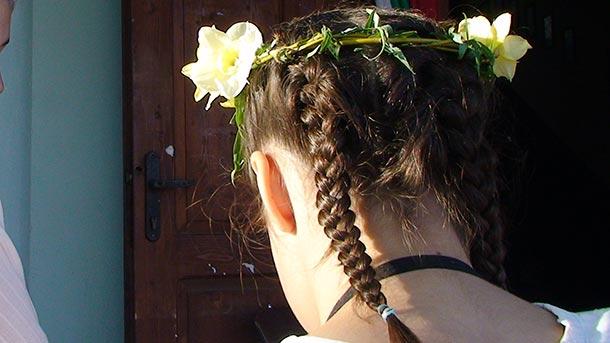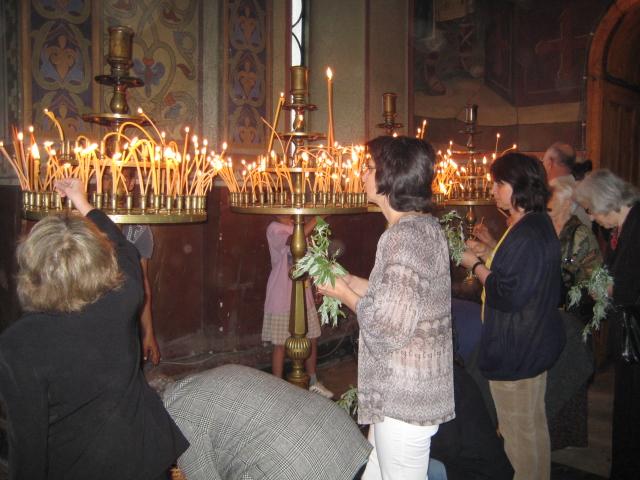 6
6
Though an integral part in the cycle of a few great Christian feasts, the folklore celebrations of Lazaritsa (equivalent of the Feast of Saint Lazarus) and Tsvetnitsa (equivalent of Palm Sunday) are distinctly Bulgarian. They represent a eulogy of resurrected nature, of youth and the hope for a new beginning. They are held with the same degree of optimism today as well though diversified with a range of contemporary inputs. How Lazarki girls dress, what is laid on the table… We revisit the tradition and make sure that we are surrounded with greenness, color and cleanness – in any sense of these words.
Lazaritsa precedes Easter and is held on the Saturday that Orthodox Christians relate to one of the wonders worked by Jesus Christ – the resurrection of Lazarus. The folklore ritual has a much different meaning though its name does refer to Lazarus. In the Bulgarian mythology Lazarus is “the master of woods and leafage”. He has got an axe in his hand and tills people’s fields. This mythical champion of goodness personifying the borderline between earthly existence and the next world is central to the ritual songs and dances of Lazarki girls. Similar to Christmas carol-singers they chant blessings for health and fertility. There are blessings offered to hosts, to girls and lads, to brides and children… Lazarki tour all houses in the village and everywhere their hosts give white eggs and coins to them. Drawing a symbolical circle, the end of the tour finally brings them to the starting point.
On the next day, Tsvetnitsa (Palm Sunday), the ritual of “koumichene” is performed. Young girls gather by the river outside the village where water goes smoothly. They carry the so-called “dolls” – elongated ritual loaves of bread. Small bits of bread are placed on battledores which girls let go floating on the water. The girl whose bit of bread wins the race will marry first. In traditional beliefs, a girl who has been a Lazarka girl and has gone through the ritual of “koumichene”shall not be taken away by a dragon. In the past it was impossible for girls to marry had they not been part of the Lazaritsa tradition, simply because the dragon would come to abduct them after they had become brides. Initiation was mandatory to go through, and only after that the girl would be allowed to wear a wreath and flowers in her head; dress in embroidered shirts, wear jewels such as a necklace, earrings, rings and bracelets.

In the Bulgarian folk tradition, the feasts of Lazarus Saturday and Palm Sunday are related holidays. From Lazarus Saturday (Lazarovden in Bulgaria), girls prepare for the ritual kumichene, which is performed on the morning of Palm Sunday. A very old..
In April and May the visitors of the Strelcha Historical Museum will have the opportunity to get acquainted with the traditions connected with the Easter holiday cycle through the exhibition A Fine Easter, a Finer St. George’s Day . Easter..
Lazarus Saturday is widely known in Bulgaria as Lazarovden , celebrated by Orthodox Bulgarians on the day before Palm Sunday. The main rite is the lazaruvane - a traditional custom centred on themes of love and marriage. Girls over the age of 16,..

+359 2 9336 661
